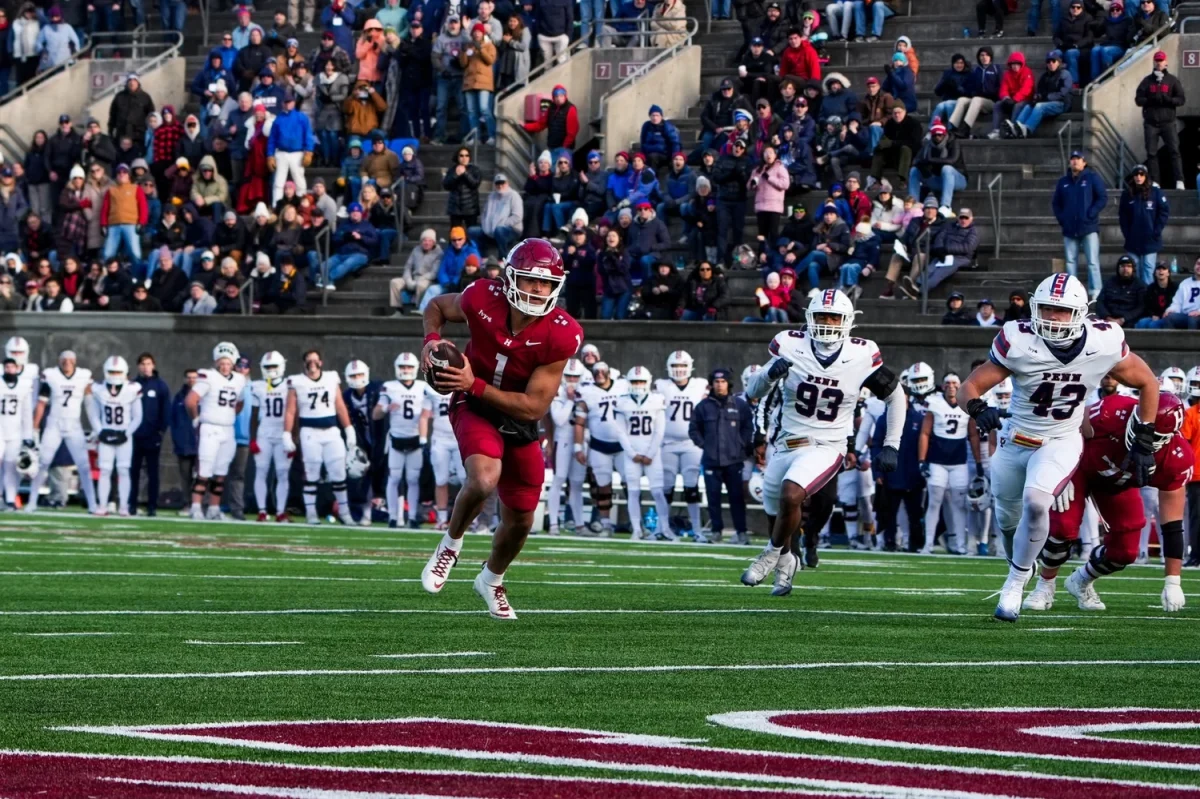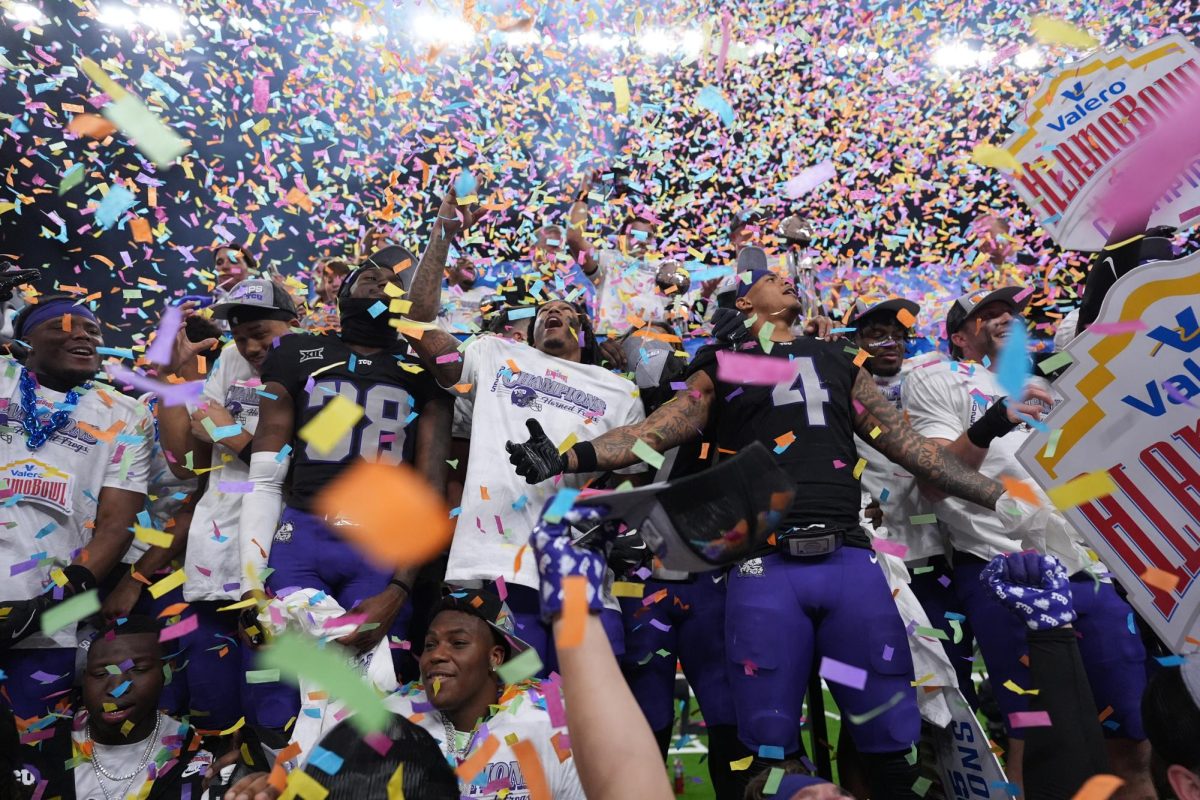After an embarrassing game against Texas finally ended early Sunday morning, TCU quarterback Casey Pachall was at a loss to explain what happened.
“ I can’t pinpoint it,” he said. “Maybe it’s character. Maybe it’s the willingness to prepare, or just come out and play for the other guys within the team. I don’t know what it is, but whatever it is needs to change.”
TCU (3-5, 1-4 Big 12) wants to change a lot of things following a 30-7 loss to Texas (5-2, 4-0 Big 12) at home Saturday night. The game was delayed for over three hours due to lightning in the area, but after the delay, the Longhorns ran away with the game.
The sky lit up over Amon G. Carter Stadium with 6:08 remaining before halftime when Texas had a 17-7 lead, and referees called for play to stop. The teams returned to their respective locker rooms and fans were allowed to take shelter in Daniel Meyer Coliseum.
The Horned Frogs had difficulty getting into a rhythm following the long delay, but head coach Gary Patterson did not use that as an excuse.
“Bottom line is we’re not very good, and we’re going to have to get better if we’re going to win any ball games,” he said.
The game resumed after a three hour and six minute delay. The teams played the final 6:08 of the first half, during which Texas kicked a 38-yard field goal to increase its lead to 20-7 before halftime, which lasted just three minutes. The Longhorns scored another 10 points in the second half to pull away before a crowd that had been thinned out by the weather.
Quarterback Trevone Boykin started the game for the Frogs, but fumbled on TCU’s second drive to set up a two-yard touchdown run by Longhorns running back Malcolm Brown. Pachall came in for TCU on the ensuing drive, and the offense gained some life.
After his first drive ended in a punt, Pachall led a 70-yard scoring drive, which ended in a 38-yard touchdown pass to wide receiver LaDarius Brown from fellow receiver Cameron Echols-Luper on a trick play. After that, however, the Frogs’ offense lost all momentum, punting the ball on nine of its final ten drives.
The problems that plagued the offense during Pachall’s absence persisted. The offensive line failed in its blocking schemes, giving up three sacks and five and a half tackles for loss. Pachall had almost no time to throw, and when he did get a pass off, receivers either dropped the ball or ran the wrong route. Nothing seemed to go right for the Frogs offensively.
“There was some confusion within the O-Line,” Pachall said, “within the receivers, what they did, myself and some missed assignments from our running backs…At times, one or two of us would take turns screwing it up.”
Pachall completed 13 of 34 passes for 139 yards and an interception. Texas quarterback Case McCoy had a mediocre night as well, completing nine of 19 passes for 228 yards with a touchdown and two interceptions. However, he completed a number of deep passes against TCU’s secondary to extend drives and put the Longhorns in good field position.
The Texas offense was able to pound the ball on the ground with Brown and Jonathan Gray too. The Longhorns ran for 187 yards on 52 carries, and the TCU defense had no answer.
“They just ran their base plays,” said safety Sam Carter. “We just have to make plays. Those running backs are pretty good, and their offensive line is a pretty great offensive line. But we could have made plays. We just didn’t make plays.
After halftime, Brown scored another touchdown on Texas’ first drive to extend its lead to 27-7. The Longhorns then added a field goal just after the start of the fourth quarter to make it 30-7.
The blowout loss represents a low point for a TCU season that began full of promise. The Frogs now have to win three of their final four games to become bowl-eligible. It has been a frustrating campaign for TCU in 2013, and especially so for the head coach.
“I’m not pleased with anything,” Patterson said. “We’re 3-5. I’m not pleased with anything. We got beat 30-7…Bottom line, as a football team, we’ve got to get better.”




